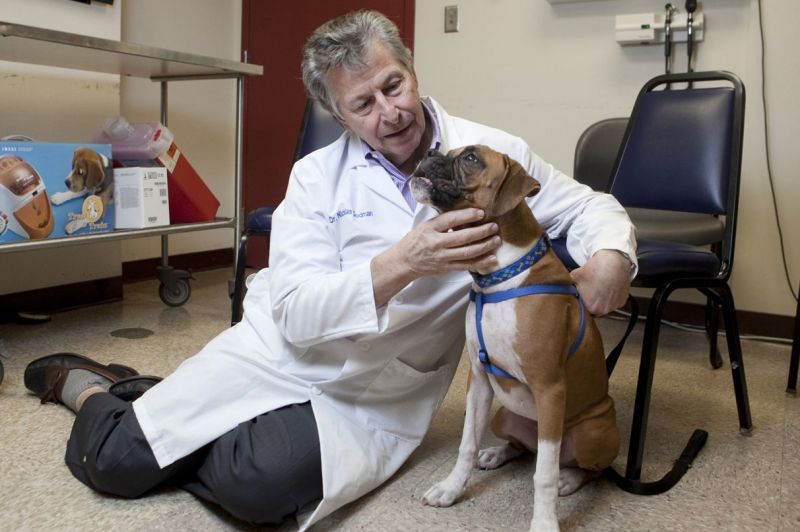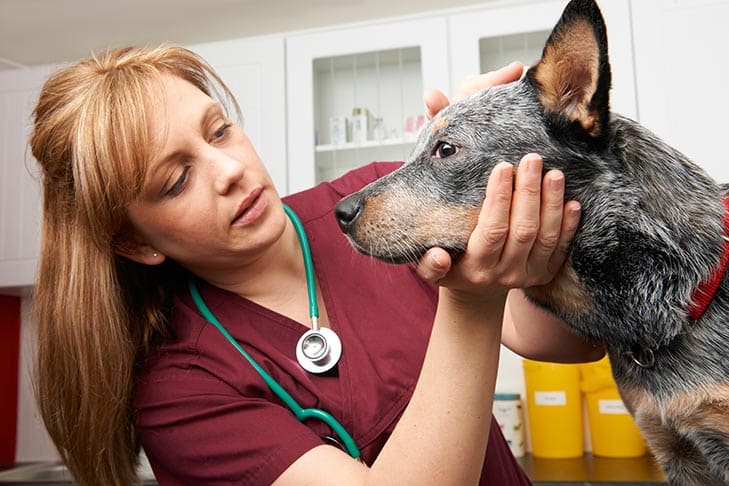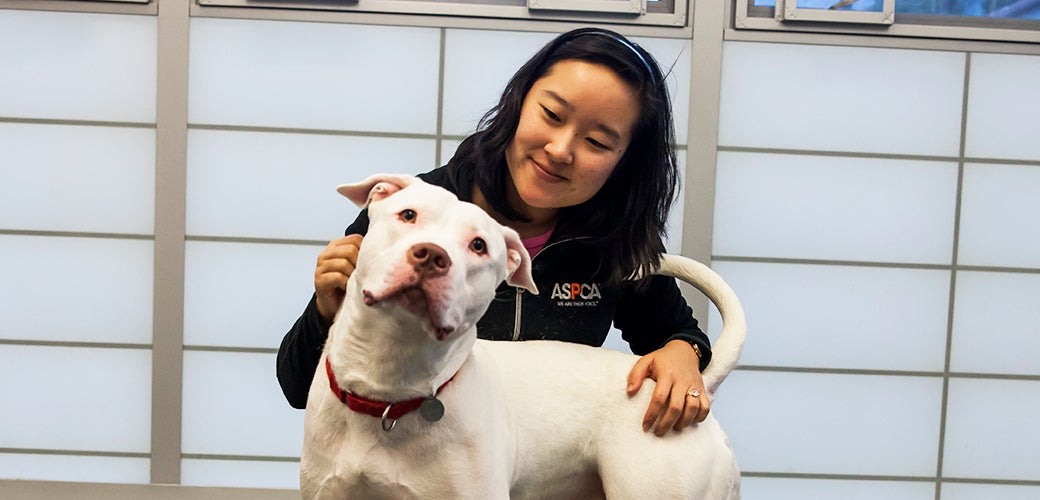Understanding the Duty of a Vet Behaviourist in Animal Training and Wellness
The role of a veterinary behaviourist is vital in dealing with the intricate relationship in between animals and their owners. They combine vet medicine with understandings from pet habits science to take on concerns like aggression and stress and anxiety. Unlike standard instructors, their approach concentrates on the underlying root causes of these behaviors. This nuanced perspective raises questions concerning the efficiency of standard training approaches and exactly how a much deeper understanding can change pet health. What methods do they use to attain these results?
What Is a Veterinary Behaviourist?
A vet behaviourist is a specialized expert that focuses on understanding and attending to the behavioral problems of pets, specifically animals. Their know-how incorporates vet medication and pet actions scientific research, allowing them to diagnose and deal with a wide variety of behavioral issues - canine behaviourist near me. These experts commonly hold postgraduate degrees, such as a Master's or PhD in pet habits, and are accredited by relevant organizations, guaranteeing they have a deep understanding of pet psychology
Vet behaviourists evaluate animals with in-depth monitoring and evaluation, thinking about factors such as genetics, environment, and training background. They create tailored behavior alteration strategies, which might include desensitization methods, positive support methods, and ecological modifications. Cooperation with pet dog proprietors is important, as they supply support and assistance throughout the training process. Eventually, the goal of a veterinary behaviourist is to improve the health of the pet while cultivating a harmonious connection in between pets and their owners.
The Value of Recognizing Pet Actions
Understanding animal habits is necessary for both pet dog proprietors and specialists in the area of pet care, as it lays the foundation for effective interaction and training. Identifying exactly how animals regard their atmosphere and reply to stimulations allows caregivers to create an extra harmonious living situation. Understanding into behavioral cues, such as body movement and articulations, promotes stronger bonds in between family pets and their owners. By appreciating the all-natural impulses and requirements of various species, individuals can customize their training approaches to fit these elements, promoting far better discovering and cooperation. Furthermore, a strong grasp of behavior scientific research aids in recognizing stressors and possible triggers, allowing for aggressive interventions. Overall, recognizing pet habits not just improves the health of family pets but likewise enriches the experiences of those that look after them, eventually resulting in much healthier, happier relationships.
Usual Behavioral Issues Dealt With by Veterinary Behaviourists
Vet behaviourists frequently attend to typical behavior issues in pet dogs, consisting of aggressiveness and fear actions. They also concentrate on anxiousness and tension administration, which can greatly affect a pet's well-being. Recognizing these issues is important for developing efficient training and treatment strategies.
Aggression and Worry Actions
While several animal owners might view hostility and concern responses as simple behavioral issues, these complicated reactions typically come from underlying stress and anxiety or past injury. Vet behaviourists play an important function in determining the origin of these habits, which can materialize in various forms, including growling, attacking, or extreme worry of specific scenarios. Recognizing these triggers is important for establishing efficient training methods tailored per animal's distinct situations. Behaviourists utilize techniques such as desensitization and counter-conditioning to assist animals manage their worries and hostility. In addition, they enlighten pet dog proprietors concerning proper administration methods, highlighting the significance of persistence and consistency. Dealing with aggression and fear responses not just boosts the family pet's high quality of life however likewise strengthens the bond in between family pet and proprietor.
Anxiousness and Tension Management
Anxiousness and stress are common concerns that numerous family pets deal with, frequently resulting from adjustments in their setting, lack of socializing, or previous adverse experiences. Veterinary behaviourists play an important duty in determining the underlying root causes of these problems. They employ numerous methods, including behavior modification, desensitization, and counter-conditioning, to help animals manage anxiousness. In addition, they might suggest environmental changes, such as creating risk-free spaces or supplying enrichment activities that advertise relaxation. Partnership with pet proprietors is important, as behaviourists lead them in comprehending their pet dog's signals and carrying out reliable coping techniques. By addressing stress and anxiety and stress and anxiety, veterinary behaviourists add greatly to enhancing the overall wellness and top quality of life for family pets and their family members.
Exactly How Vet Behaviourists Differ From Typical Fitness Instructors
Veterinary behaviourists vary from traditional instructors mainly in their instructional backgrounds and training. While traditional fitness instructors frequently concentrate on obedience and fundamental commands, vet behaviourists emphasize understanding and resolving underlying behavioral concerns, incorporating clinical factors to consider into their strategy. This distinct emphasis permits them to provide a much more thorough treatment for animals with intricate behavior difficulties.
Education and Training Distinctions
Understanding the difference between vet behaviourists and typical fitness instructors is crucial for family pet owners seeking effective training solutions. Vet behaviourists have postgraduate degrees in vet medication, often complied with by specialized training in animal behavior. This education and learning equips them to attend to complex behavioral problems that may originate from medical problems or psychological variables. On the other hand, traditional fitness instructors commonly have qualifications from training programs that concentrate on official source obedience and standard commands without diving into the underlying emotional or clinical aspects. While both experts aim to boost pet dog practices, veterinary behaviourists can diagnose and deal with behavioural troubles holistically, integrating clinical expertise right into training strategies. This vital distinction highlights the relevance of picking the ideal specialist based upon the pet's specific demands.
Concentrate On Behavioral Issues
Resolving behavioural issues needs a nuanced strategy that identifies veterinary behaviourists from traditional fitness instructors. While conventional instructors commonly concentrate on obedience and standard commands, veterinary behaviourists discover deeper right into the underlying sources of bothersome behaviours. They use a considerable understanding of animal psychology and therapy strategies, which are rooted in scientific research study. This competence allows them to determine concerns stemming from anxiousness, fear, or aggressiveness, as opposed to simply resolving surface-level symptoms. In enhancement, vet behaviourists assess the family pet's overall wellness, taking into consideration environmental elements and the pet's background. By integrating medical understanding with behavioral strategies, they provide customized remedies that promote long-term behavioural modification, making certain both the animal's and owner's top quality of life are considerably enhanced.
Clinical Factors To Consider Consisted Of
While typical trainers may neglect underlying medical problems, vet behaviourists focus on a detailed assessment of a pet's health and wellness as a fundamental step in attending to behavioural troubles. This approach allows them to identify prospective medical conditions that may add to undesirable behaviours, such as anxiety, pain, or neurological disorders. By incorporating clinical evaluations right into their technique, vet behaviourists can work together with veterinarians to ensure an alternative understanding of the animal's wellness. Additionally, they can recommend appropriate treatments or changes to training strategies based upon medical findings. This comprehensive perspective identifies vet behaviourists from conventional trainers, as they resolve both behavioral and health-related variables, eventually causing extra reliable and lasting end results for Web Site family pets and their proprietors.

The Refine of Working With a Vet Behaviourist
Teaming up with a vet behaviourist entails an organized approach to resolving a pet dog's behavioral issues. The procedure begins with a comprehensive analysis, where the behaviourist collects in-depth information concerning the animal's history, setting, and particular behaviors that are problematic. This typically includes surveys, meetings with the family pet owner, and often observations of the pet dog in its environment.
Following the evaluation, the vet behaviourist develops a customized intervention plan that may consist of behavioral adjustment techniques, training approaches, and, if required, suggestions for medical examinations. canine behaviourist near me. The strategy is developed to be practical and achievable, making certain that it fits effortlessly right into the pet dog owner's lifestyle
Subsequent follow-up sessions are vital to check development, adjust methods, and provide assistance. This collective effort not only intends to customize undesirable habits however additionally to improve the overall well-being of the animal, ensuring a harmonious partnership in between the animal and its proprietor.
Enhancing Your Animal's Lifestyle Via Behavioral Support
Enhancing an animal's top quality of life via behavior assistance is important for promoting a healthy and balanced and fulfilling relationship in between family pets and dog behaviourist near me their proprietors (veterinary behaviour). Veterinary behaviourists play a crucial role in identifying and addressing behavior concerns that may hinder a pet dog's wellness. With customized approaches, they assist ease stress and anxiety, concern, and hostility, ultimately promoting an extra well balanced and satisfied family pet
Behavioral assistance incorporates numerous strategies, consisting of positive support, environmental enrichment, and socialization. By carrying out these techniques, proprietors can produce a caring atmosphere that urges positive habits. This not just enhances the family pet's psychological health however also strengthens the bond between pet dog and owner.
Additionally, regular examinations with a vet behaviourist guarantee that any kind of arising behavior issues are without delay resolved, preventing rise. Generally, investing in behavioral assistance is an aggressive strategy that considerably enriches a pet dog's life, leading to boosted physical and psychological health and wellness outcomes.
Regularly Asked Concerns
What Certifications Do Vet Behaviourists Have?
Vet behaviourists normally hold a vet degree, followed by specialized training in pet actions. Several additionally possess certifications from identified companies, demonstrating their proficiency in dealing with pet behavior issues and promoting general pet wellness.
Can Veterinary Behaviourists Recommend Medication for Family Pets?


Vet behaviourists, possessing vet degrees and specialized training, can certainly suggest medication for animals. This capability allows them to deal with underlying behavior problems efficiently, usually combining medicinal treatment with behavior alteration strategies for ideal results.
How Much Time Does Behavioral Therapy Generally Take?
Behavior modification period varies considerably, usually ranging from a couple of weeks to a number of months. Elements affecting this timeline include the pet's particular issues, uniformity of training, and the owner's involvement at the same time.
Are Remote Consultations Readily Available With Veterinary Behaviourists?

How Much Does a Vet Behaviourist Appointment Cost?
The cost of a veterinary behaviourist consultation usually ranges from $100 to $300, relying on aspects such as place, experience, and session length. Extra costs might obtain follow-up appointments or specialized solutions.